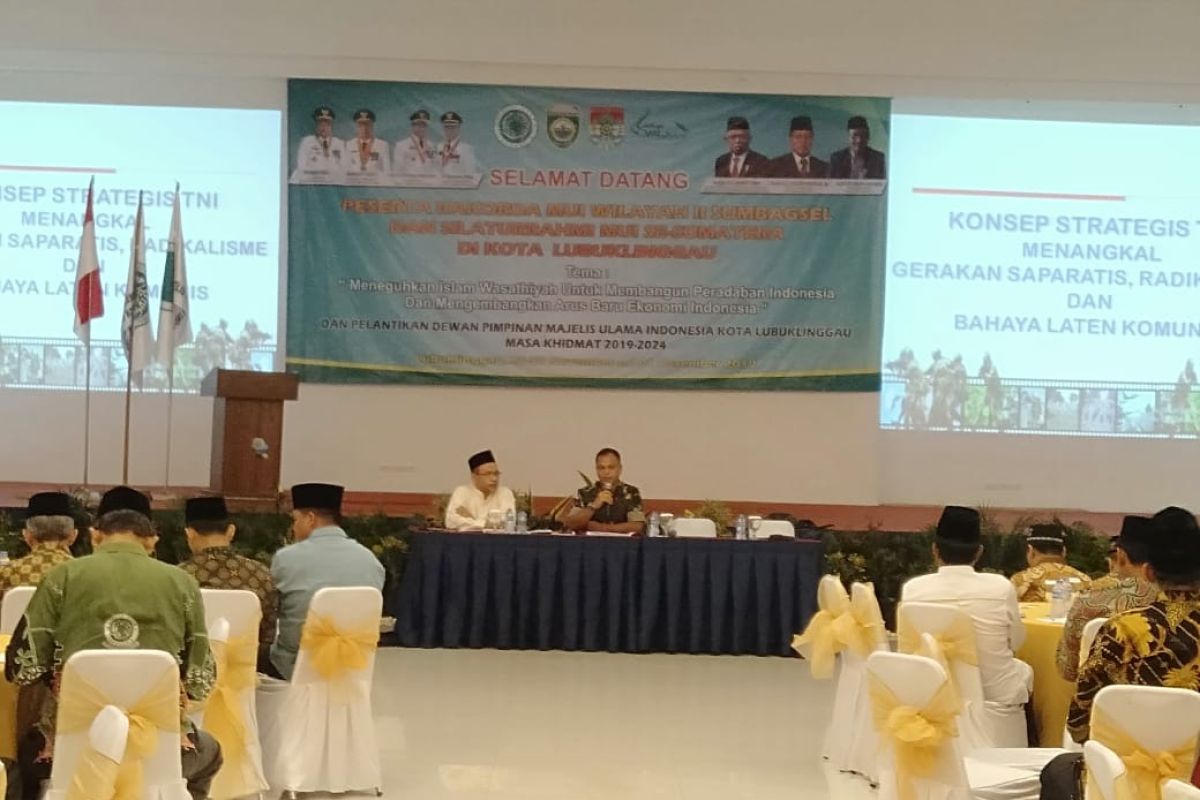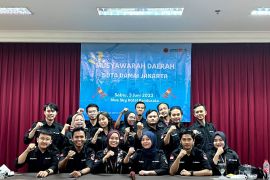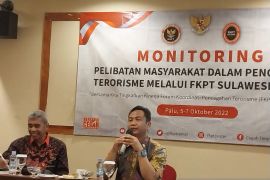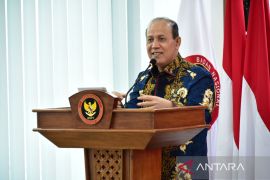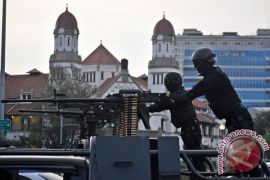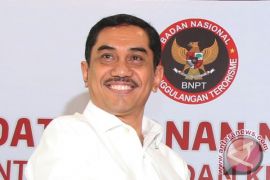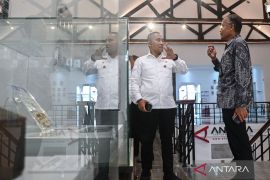They were also related to global capitalism, poverty, and absence of justicePalembang, S Sumatra (ANTARA) - The 044/Garuda Dempo Regional Military Command in South Sumatra Province highlighted the importance of igniting the spirit of nationalism to deal with the latent dangers of terrorism and radicalism.
The message was sent by Head of the 044/Garuda Dempo Regional Military Command's Intelligence Unit Lt.Col.Imam Priharso when speaking at a coordinating meeting of the Indonesian Ulema Council (MUI) in Lubuklinggau city recently.
The factors that might have triggered the rise of radicalism and terrorism were not just related to narrow understanding of religion, and socio-cultural, political, and ideological issues, particularly the anti-Westernism.
They were also related to global capitalism, poverty, and absence of justice, Imam Priharso told the meeting's participants who came from all MUI-provincial chapters on Sumatra Island.
The acts of terrorism and radicalism were perceived as the nation's common enemy, and the Indonesian Defence Forces (TNI) would fight against these threats along with all elements in the society, he said.
The spirit of nationalism needs to be ignited and well understood by the entire nation. Imam Priharso also warned the people of the latent dangers of communism and separatism in Indonesia.
In his second leadership term, President Joko Widodo has repeatedly highlighted the real threats of proliferated radicalism and terrorism. In addressing this problem, the government and related stakeholders intensify deradicalization efforts.
Regarding this issue, Deputy Speaker of the People's Consultative Assembly (MPR) Ahmad Muzani said the state ideology Pancasila is non-negotiable for Indonesia so that the entire nation must have a common spirit of opposing radicalism and terrorism.
"Pancasila is cultivated by the nation's leaders who come from different backgrounds. We need to reach a common agreement to enable this nation to keep standing solidly because it is a multiethnic, multiracial, and multicultural one," he said.
Related news: Terrorism, radicalism are still serious challenges: President Jokowi
As revealed in his recent press statement, Ahmad Muzani said the proliferation of radicalism and terrorism could threaten the nation's unity in diversity.
Indonesia has become the target of attacks by terrorists since 2000, and the spread of extremism and terrorism continues to threaten the country.
On November 13, a suicide bomber detonated the home-made bombs that he carried at the yard of the Medan city police headquarters.
In May 2018, a church in the East Java city of Surabaya was attacked. Three years ago, ISIS supporters in Indonesia had launched a suicide bombing and shooting attack in Jakarta on January 14, 2016, which led to the deaths of eight people, including three innocent civilians.
The incidents added to the list of deadly assaults conducted by terrorist cells in Indonesia. From 2000 to 2012, more than a dozen attacks had taken place in the capital city, including the Australian embassy bombing on September 9, 2004, and the JW Marriott and Ritz-Carlton hotel bombings on July 17, 2009.
Related news: Pancasila is non-negotiable for Indonesia: MPR's deputy speaker
Related news: Build narrative of harmony to stamp out radicalism: VP Ma'ruf
Translator: Ujang I, Rahmad Nasution
Editor: Fardah Assegaf
Copyright © ANTARA 2019
